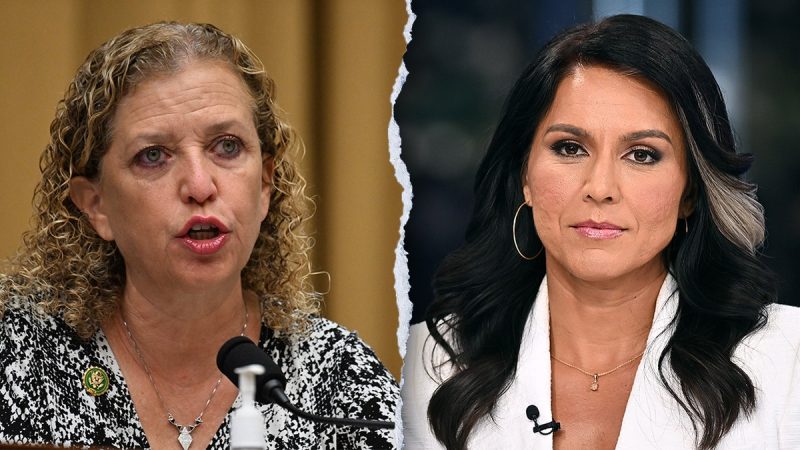In the ever-evolving political landscape, controversial and bold statements often steal the limelight. This appeared to be the case for American democratic congresswoman Debbie Wasserman Schultz when she sparked a public backlash with her controversial statement claiming that her fellow democrat, Tulsi Gabbard, was a Russian asset.
Wasserman Schultz’s comments have roots in former presidential candidate Hillary Clinton’s remarks in a 2019 interview, where she somewhat obtusely hinted at then-presidential candidate Gabbard as a favorite of the Russians. Many interpreted Clinton’s words to suggest that Gabbard was perhaps being groomed by the Kremlin for various political benefits.
Wasserman Schultz, in her tweet from Aug 30, mirrored the sentiment voiced by Clinton, unabashedly referring to Gabbard as a Russian asset. Without mincing her words, she wrote, “She wore aloha attire to make her mark early on and now has insinuated herself into the 2024 GOP primary by defending Trump and his ‘Big Lie,’ the pathway for Putin and Russia. In 2020 we saw how this worked.”
The politics of the ‘Big Lie’ relates to Trump’s consistent and unfounded allegations concerning the legitimacy of the 2020 elections. Wasserman Schultz implied that Gabbard’s defense of Trump and his ‘Big Lie’ was essentially giving Russia – specifically, Putin – a pathway to intervene and distort American politics. This inference further painted Gabbard as a Russian pawn.
Rep. Gabbard, the first Hindu member of Congress and a decorated war veteran, who had previously served in Iraq, responded assertively to this explosive claim. She branded Schultz’s claim as an example of McCarthyist smears. She added the assertion was made without any evidence to substantiate the claim, an indicator, in her view, of a deterioration of foundational principles of Democracy such as ‘innocent until proven guilty.’
More significantly, this public debate between Wasserman Schultz and Gabbard fueled a heated discussion about the consequences of wielding influence through incendiary remarks. Wasserman Schultz’s tweet seemed to amplify the echo of previous conspiracies and narratives involving Russia in American politics, sometimes leading to divisive discussions and misinformation.
This incident also highlighted the ongoing need for transparency and fact-based argumentation in the public discourse. Accusations as significant as being a ‘Russian asset,’ especially when public figures involve, need to be backed up by concrete evidence. Only then can meaningful, progressive debates be fostered in the political landscape.
It is clear that this episode has served as a stark reminder of the repercussions our public figures can face as a result of controversial statements. Furthermore, it underlines the responsibility that public figures shoulder in shaping public opinion and promoting constructive and respectful discourse, especially when the world is more polarised than ever.
Wasserman Schultz’s claim has had an apparent impact on public opinion, with multiple stakeholders entering the discussion either in support or rebuttal of her statement. This incident highlights the importance of a balanced narrative, as well as reminding us of the intricacies of political relationships and the alliances that form within, always leaving us on our toes, awaiting the next significant political play.






























